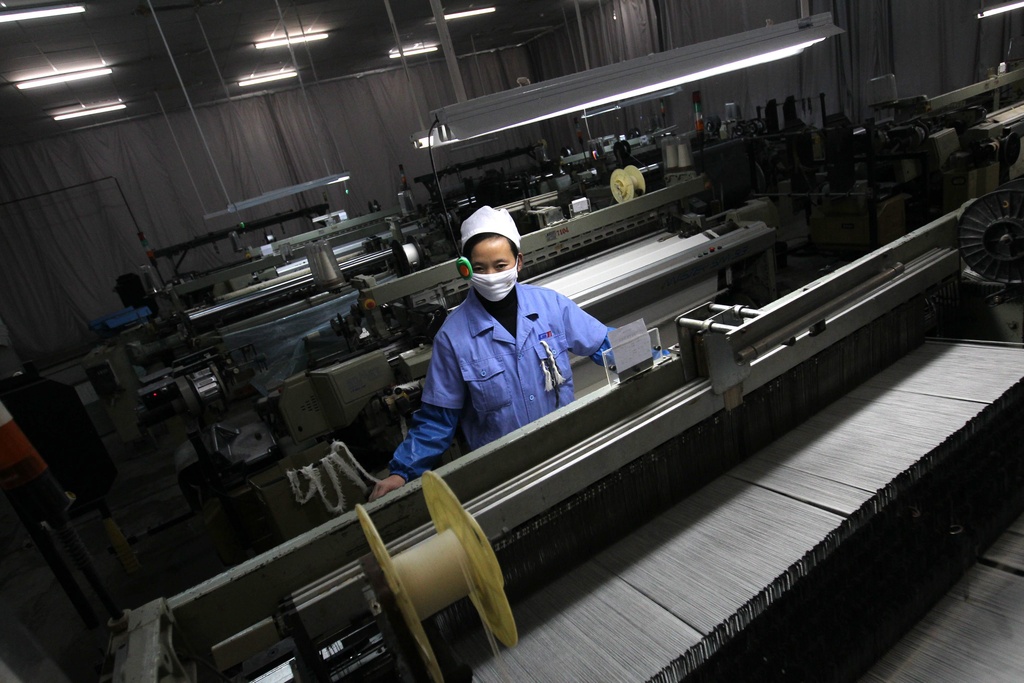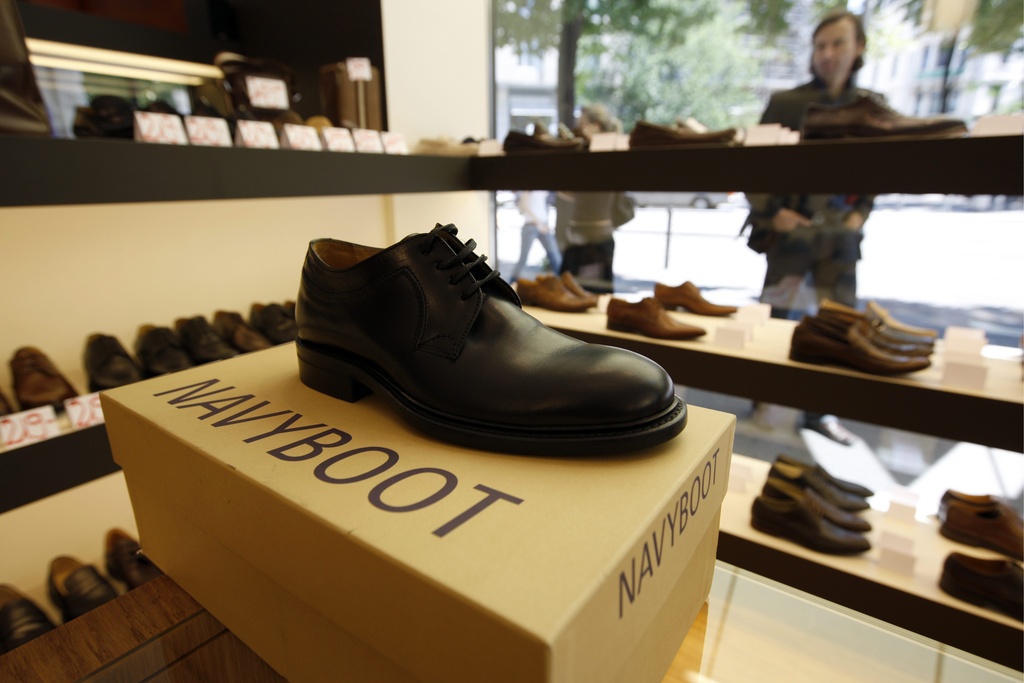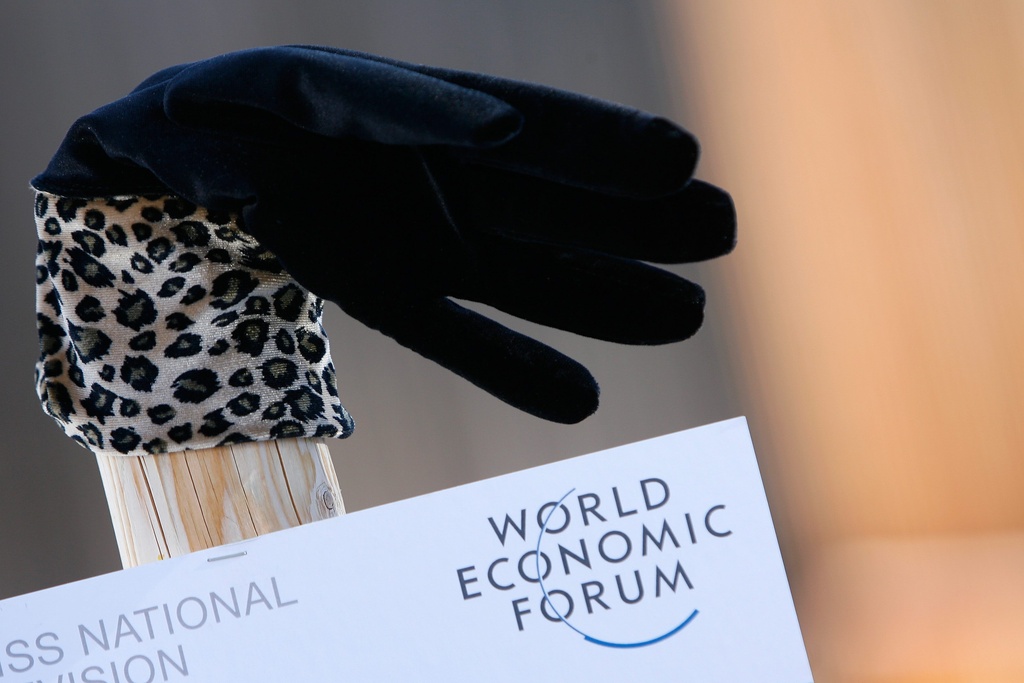China forecast to remain global growth engine

The prospects of continued Chinese economic growth remain excellent despite obstacles to stimulating consumer spending, the World Economic Forum (WEF) has heard.
The prognosis will come as welcome news to many Swiss exporters that are shifting their gaze away from Europe towards the most dynamic emerging economies.
Some 300 Swiss firms are physically present in China and many more are gaining a foothold for their products in the rapidly expanding market.
Fears that China’s economy (that expanded by 8.9 per cent last year) could overheat, were dispelled by experts at the WEF annual summit in Davos.
Delegates also poured cold water over Western fears that China is attempting global domination.
“Chinese business people are highly energetic and optimistic about the future,” John Quelch, dean of the Shaghai-based China Europe International Business School told swissinfo.ch. “They view the current situation as a once in a lifetime opportunity to do well for themselves, their families and their country.”
“This mood has been magnified by a downturn in the West,” he added. “Most Chinese believe this represents an opportunity to close the economic gap on the West.”
Challenging foreign know-how
The Chinese economy has transformed itself from a manufacturing base for cheap consumer goods into a technology driven hub of innovation.
A survey of foreign firms in China by Swiss business consultancy, the Shanghai-headquartered CH-ina, found that the second most pressing concern is local competition.
“If you look at the internet space: a few years ago, Chinese companies would borrow foreign concepts such as Twitter and Facebook and replicate them for the Chinese market,” WEF’s executive director for China, Olivier Schwab told swissinfo.ch.
“Today, a slew of features and services have been developed to address local market needs, so that now the ‘Weibo’ (microbloging-sites) don’t resemble the original sites they were inspired from, and are sometimes more sophisticated.”
Despite this fear, 85 per cent of Swiss firms in China said that revenues were higher in 2011 than the previous year and the same proportion plan to increase their Chinese investments.
Swiss exports to China are also booming, climbing 18 per cent in the first nine months of 2011 to total SFr6 billion ($6.5 billion). China is the third most important market for Swiss exports after the European Union and the United States.
Investment with ties
China has also been proactive in gaining Western business insight.
Negotiations for securing market access often come with ties that foreign companies invest in Chinese based research and development sites, according to John Quelch.
Earlier this month, Swiss food manufacturing giant Nestlé committed SFr376 million ($410 million) in the Heilongjiang province, weeks after being given the green light to take over Chinese confectionary firm Hsu Fu Chi.
But China also faces major challenges including the transition from being a manufacturing export-led economy to one grounded on domestic consumption. The biggest problem is persuading Chinese consumers to spend more, according to Quelch.
“The big conundrum is how China will make this leap and encourage people to save less for their old age when there is no social security net or state pension plan to speak of,” he told swissinfo.ch.
And the world’s fastest growing economy also has to improve the efficiency of its huge state-run enterprises, particularly in the energy and transport sectors.
“The Chinese government is astute enough to realise that the success of the economy hinges on running huge state-owned enterprises (SOEs) more efficiently. We have witnessed a huge increase in appetite for our best MBA students from SOEs to improve the calibre of managers,” Quelch told swissinfo.ch
“There is no need to assume that the bad practices of state-run companies in Europe will be played out in China.”
Bad image
China’s relentless economic rise (it overtook Japan as the world’s second largest economy last year) has alarmed some commentators in the West.
Part of China’s success has come from its authoritarian regime that can make swift decisions backed up by huge resources without the need for debate. The success of this model of state capitalism has not be lost on David Rubenstein, head of the US private equity Carlyle Group.
“We’ve got about three to four years in the West to improve the economic model we have. If we don’t do that soon I think that we’ve lost the game in competing against the emerging market capitalism, or state capitalism,” he said during a WEF debate. “I just think they have a more efficient model right now.”
World Trade Organisation (WTO) chief Pascal Lamy predicts the expansion of Chinese economic influence outside of its borders will create “political turbulences”.
But he was at pains to point out to WEF delegates that many Chinese stereotypes in the West are illusory and the result of “erroneous public perception”.
China has been criticised, mainly by the US, for artificially holding down the value of the nation’s currency – the renminbi.
China has invested a large chunk of its state reserves in US dollars thus influencing the exchange rates of the two currencies in favour of its exporters.
In 2005, the Chinese authorities allowed the renminbi to float, albeit inside tight parameters inside a fixed base rate. China has promised to make these margins more flexible in future, but the policy still attracts much ire in the US.
It has been claimed that the renminbi is undervalued against the dollar by as much as 37.5% by purchasing power parity measurements.
China has recently contemplated releasing its currency as a major global reserve currency – with onshore centres in Hong Kong, and perhaps even London.
Such a move would have to be accompanied by a relaxation on China’s controls of its currency.
Switzerland recognised the newly established People’s Republic of China on January 17, 1950, one of the first Western states to do so. It simultaneously withdrew recognition of the Republic of China (Taiwan).
Contacts with the People’s Republic were not initially close, owing to internal turmoil in China and the Cold War. The People’s Republic made its first appearance on the international stage when Chinese premier Zhou Enlai took part in the Indochina Conference in Geneva in 1954.
Bilateral relations between Switzerland and China have developed at a brisk pace since Deng Xiaoping launched his policy of liberalisation and reform in 1979.
There are currently 3,297 Swiss living in China. Around 300 Swiss firms with some 700 branches are active, employing some 126,000 workers in China.
Since 2002 China, including Hong Kong, has been Switzerland’s most important trade partner in Asia.
Swiss exports (to mainland China alone) totaled SFr7.5 billion in 2010 (up 27% from a disappointing 2009). In the first nine months of 2011, Swiss exports to China grew again by 18% to SFr6 billion.
Imports from China also picked up in 2010, growing 29% to SFr6.7 billion. However Chinese imports took a slight dip in the first nine months of last year (-2.6%) to chalk up SFr4.5 billion.
In the world as a whole, China is the third biggest exporter to Switzerland behind the EU and the US. China is also Switzerland’s third-biggest export market after the EU and the US.
Switzerland is currently negotiating a free trade agreement with China.
A feasibility study published in 2010 suggested that Swiss gross domestic product (GDP) could be boosted by 0.23 per cent while firms could make annual savings of SFr290 million ($304 million) per year if trade barriers are lifted.

In compliance with the JTI standards
More: SWI swissinfo.ch certified by the Journalism Trust Initiative




You can find an overview of ongoing debates with our journalists here. Please join us!
If you want to start a conversation about a topic raised in this article or want to report factual errors, email us at english@swissinfo.ch.